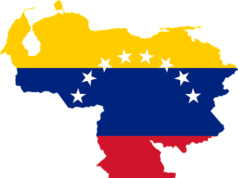Must Smartphone Users in the US state of California soon pay taxes for a service that hardly anyone uses? In any case, the California Public Utilities Commission (CPUC) has proposed to tax classic short messages. SMS should flush more money into the state treasury. Numbers should be the mobile users. The money should give poorer people the chance to access the mobile network.
According to the 52-page CPUC report (PDF) , the tax should not be billed per SMS, but as part of a monthly fee, which mobile operators usually charge in the form of a flatrate for short messages. Up to five years retroactively the authority wants to collect the taxes. The CPUC, which in addition to water and energy supply is also responsible for the telephone companies in the state of California, wants to vote on 10 January on the plans.
The rationale for the tax: The domestic revenue from the telecommunications industry have been declining for years. The state thus received more than $ 16 billion in 2011. In 2017, this amount had dropped to just over 11 billion euros. The financial support for socially vulnerable citizens, however, had increased in the same period from $ 670 to 998 million. „This is not sustainable over time,“ says the document.
Critics doubt the SMS tax. „That’s a stupid idea,“ said Jim Wunderman of the Bay Area Council of California’s The Mercury News . Text messages are the modern means of communication. „It would be like asking for a tax on the conversations we have.“
Tax on a discontinued model
Even a decision by the Federal Communications Commission (FCC), the telecommunications regulator in the US, could thwart the SMS tax plans. On Wednesday, the agency ruled that short messages in the future, just like e-mails as an information service and not as a phone service. According to trade association CTIA, California could not levy an SMS tax without the permission of the federal agency FCC.
The most peculiar thing about the plans is that a tax should be levied on text messages. Classic SMS are more of a discontinued model. In Germany, for example, the number of sent SMS has been shrinking for years, according to Statista . While in 2012, 60 billion classic short messages were sent annually, in 2017 there were only ten billion.
Nowadays, messages are mostly sent free of charge with internet-based messengers like WhatsApp , Telegram and Threema as well as via Facebook and Instagram. Also, Apple’s iMessages work that way. For this, users only need data volumes. All of these SMS alternatives would not be affected by the tax.



